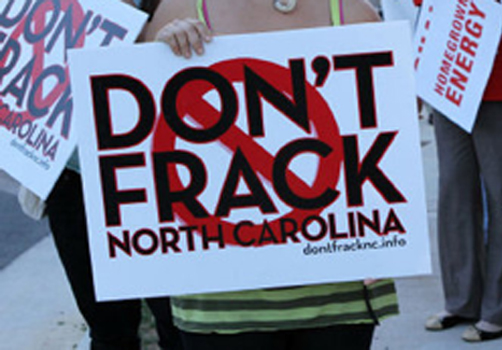Does Fracking Threaten Drinking Water?
![By Tim Evanson [CC BY-SA 2.0 (http://creativecommons.org/licenses/by-sa/2.0)], via Wikimedia Commons](http://frogsaregreen.org/wp-content/uploads/2015/10/Bernice_1_and_2_moisture_flare_-_Arnegard_North_Dakota_-_2013-07-04.jpg)
By Tim Evanson [CC BY-SA 2.0 (http://creativecommons.org/licenses/by-sa/2.0)], via Wikimedia Commons
On the other hand, groups in favor of fracking point to the numerous safety precautions taken by drilling companies. These companies are regulated by a series of laws intended to protect the environment and local drinking water. Recently, defenders of fracking have been given another piece of evidence that is giving them a solid platform to backup their stance with.
That piece of evidence is a recent EPA (Environmental Protection Agency) report. In the report the EPA states that fracking does not threaten local drinking water supplies. The report took place over four years and looked at fracking activities across the United States.
The EPA concedes that in a few cases fracking wells have been responsible for contamination. However, they point out that these cases are few and far between. In fact, in cases where contamination has been detected, it almost always happens at wells that are violating one or more federal safety guidelines.
Fracking companies are also quick to point out that the chemicals they shoot into the ground are injected well below the watershed. In most places the watershed rests at about 2,000 to 3,000 feet. The wells that fracking companies drill go well below the watershed, up to depths of 9,000 feet. That means that these chemicals stay down in the ground, as they cannot go against gravity, and transition thousands of feet up to the watershed.
Companies also take extra precautions to preserve the watershed. All wells that are drilled have an additional amount of protection near the surface. Large amounts of concrete are poured around the fracking well closer to the surface, just as an extra precaution against any leaks.
All of these precautions protect drinking water from contamination. By following federal regulations and reinforcing wells near the surface, fracking companies strive to make their wells as secure as possible. These precautions are surely one of the reasons that the EPA concluded that fracking does not contribute to the contamination of drinking water.
However, no industrial process that uses as many chemicals as fracking can be completely clean and contamination free. Every year, rigs inject billions of gallons of fracking solution into the earth. Most of this solution is water and a small percentage is chemicals, lubricants and other compounds. Even though the solution is predominantly water, even just 2% of a billion gallons means 20 million gallons of pure chemicals.
One of the problems with fracking is that a majority of this solution is left behind in the earth. Depending on the well, only 30 to 50% of the solution used in fracking is recovered from beneath the ground. That means that every year a nearly unimaginable amount of polluted water is being left underground.
Problems also arise when that water is above ground. The fracking solution is usually stored in large tanks and ponds. Unfortunately, these storage areas are prone to dangerous spills. When fracking solution spills above ground, two things happen.
First, the solution sinks into the ground. Since thousands of gallons can spill at one time, this can add up to a significant amount of spilled solution. This water can sink down into the watershed. There, it gets mixed with clean water and is eventually used for drinking water.
The other problem associated with fracking solution spills happens when that water leaks into a local stream, river, pond or lake. When this happens the solution is carried off and it becomes mixed with pure, fresh water. This is a big problem because this type of leakage cannot be controlled. Once fracking solution leaks into a river, for instance, little can be done besides warning local residents about the danger.
More than anything else, there is one law associated with fracking that is alarming when it comes to the quality of drinking water. Fracking companies are exempt from the Clean Water Act and Safe Drinking Water Act. That means that their activities aren’t regulated by two acts which are explicitly designed to protect drinking water.
One of the larger problems with the question of fracking is that neither side has enough science to entirely disprove the other’s arguments. People who support fracking point out that spills are rare and many precautions are taken to protect drinking water.
Environmental activists argue that every year, fracking rigs use millions of gallons of potentially hazardous chemicals. Furthermore, they argue that by leaving these chemicals in the ground, fracking companies are risking watershed contamination.
Ultimately, the best way to solve the question is by doing your own local investigation. If you don’t live near a fracking rig then it’s likely you have nothing to worry about. If you do, you can take water samples and have them sent into the EPA for analysis.
It’s as likely as not that these samples will be fine and your drinking water is safe to drink. On the other hand, if there are chemicals present, you’ll be able to research them and discover if they potentially came from a fracking rig. Once you know what’s in your water, you’ll be able to take steps. Buying a water filter or filing an EPA complaint are all valid options.
John Davis writes for YourWaterFilterGuide.com, a site dedicated to helping everyone find clean, safe, drinking water.
Sources
http://www.nrdc.org/energy/gasdrilling/
http://www.sourcewatch.org/index.php/Fracking_regulations
http://www.rt.com/usa/study-claims-fracking-safe-324/
http://cfpub.epa.gov/ncea/hfstudy/recordisplay.cfm?deid=244651

